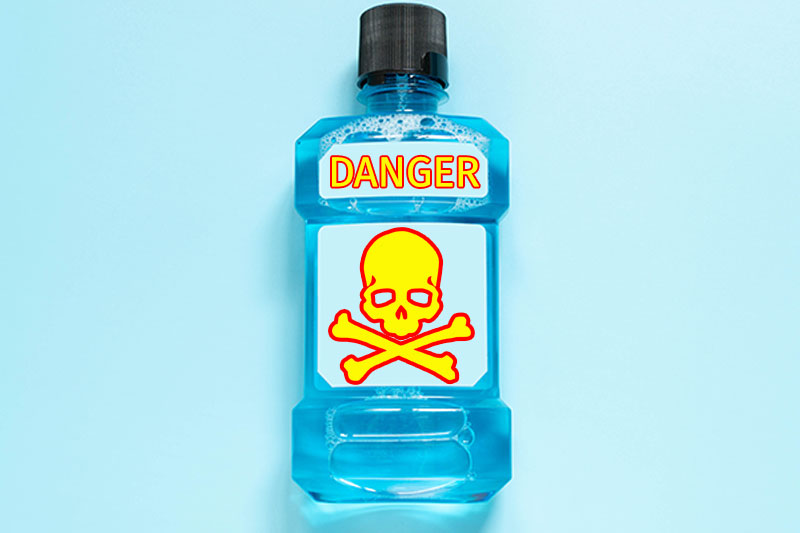Mouthwashes have long been a popular hygiene product. It helps remove plaque and freshen your breath after “snacks,” as well as reduce the harmful effects of the acid generated by processing the leftover food by the “living” bacteria in the mouth.

But it might be too early to rejoice when reading the list of benefits. Australian scientists have long warned that mouthwash fans have a lot to worry about.
Abuse – from the word “evil”
In the pursuit of perfect purity and freshness, many people abuse this oral hygiene product. Experts from the University of Glasgow (Scotland) 2009 proved through experiments that rinsing agents have at least two dangerous effects.
Firstly, alcohol-containing agents also kill the beneficial bacteria in the upper digestive tract and irritate the mucous membrane. Secondly, the role of rinsing agents in increasing the number of oral cancers might be significant.
In a study that involved more than 4 thousand people (1962 of them were patients in cancer hospitals; the rest were healthy people.
During a study conducted on more than 4 thousand people, the analysis of personal habits and preferred oral hygiene products, allowed scientists to draw a discouraging conclusion: frequent use of mouthwash provokes the formation of cancer cells in the body.
Smokers who are accustomed to removing the smell of tobacco by rinsing their mouth with specialized aromatic liquid are at their highest risk. This habit is no less harmful than smoking itself. It leads to the appearance of cancer cells in the larynx, oral cavity, and even the stomach.
The results of the study do not mean that rinse aid should be stopped, but should not be done more than 1 time a day.
This hygiene product is more suitable for patients who experience dry mouth due to the use of potent medications. People with healthy teeth do not need it for the most part.
Not only cancer but also diabetes
Scientists at Harvard and Puerto Rico University came to the conclusion that mouthwashes can also cause diabetes.
Experts examined the medical history of 1,200 patients aged 40–65 (at risk for diabetes). In the course of the work, it turned out that obese people are 20% more likely to have diabetes if they use mouth rinses once a day, and 30% if they use it twice.
Most of these cleaning agents do not have particular properties only against harmful bacteria.
Together with harmful putrefactive microorganisms, they actually destroy the useful ones. In particular, the chemical composition of any rinse is detrimental to bacteria that produce nitric oxide.
The latter is necessary for the body to normalize blood sugar. Lack of nitric oxide ultimately leads to the development of diabetes.
So as it turns out, in the pursuit of fresh breath, a person continually risks his health.


